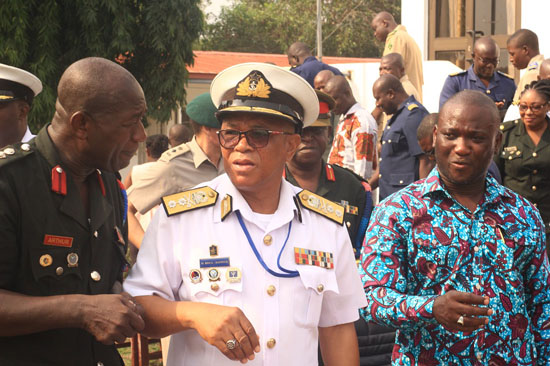
Ghana Armed Forces trains stakeholders on Exclusive Economic Zone (EEZ) management
The Chief Executive Officer (CEO) of the National Petroleum Authority (NPA), Mr Hassan Tampuli, has stressed the need for Ghana to strengthen security operations within the maritime domain, especially within the Exclusive Economic Zone (EEZ).
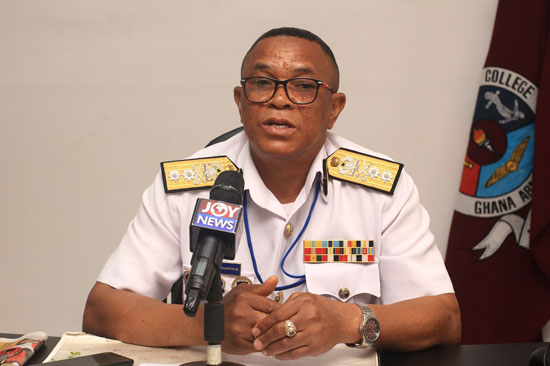
Rear Admiral Moses
EEZ Course
EEZ is the area of the sea in the coastline where the country has the exclusive right to undertake all forms of operations including the exploitation of marine resources, such as energy production from water and wind, fishing and drilling.
The Ghana Armed Forces Command and Staff College (GAFCSC) has been training selected officers of the Ghana Armed Forces (GAF), officers of other security services and qualified civilians from the Ministries, Departments and Agencies (MDAs) for middle level command, staff, policy and governance functions in joint, combined and multi-agency operations.
The College also trains students from armed forces of other African countries for higher engagements within the national and international environment.
As part of the course of study, the College organizes modules to enhance the content of the course including the Exclusive Economic Zone (EEZ), Defence Management and Conflict and Crisis Management Modules.
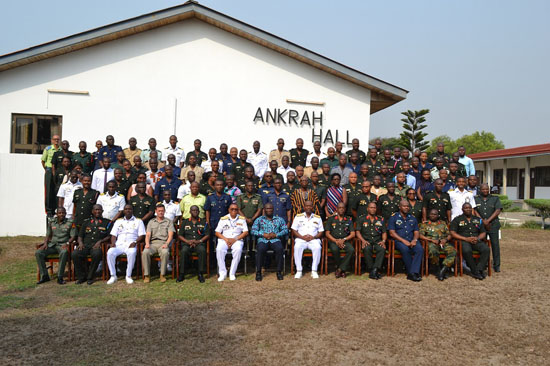
A group photograph after the opening of the 14th Course
The 14th EEZ week-long course was organised by the GAFCSC with the aim to ensure a more professional and holistic understanding of the management and operations of EEZ by all stakeholders, by impacting on participants relevant theoretical and practical knowledge.
The management of Ghana’s EEZ includes management of marine resources, maintenance of law and order at sea,
Participants were expected to among other things develop skills to actively participate in policy formulation, implementation and evaluation on EEZ matters from “an informed decision and enlightened perspective.”
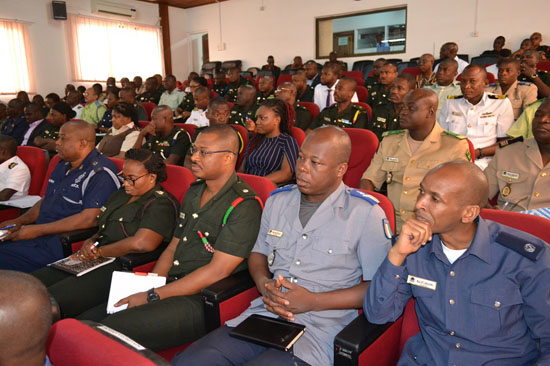
Some participants at the 14th Course
Eighty-seven participants from 20 maritime-related agencies in Ghana and external participants attended the course. Those who participated also included regular students of ‘Course 40’ of the College, 27 of whom were from other African countries.
The course objectives included creating awareness among stakeholders about the enormity of the resource potential and the requirements of monitoring, control and surveillance of the EEZ, identify capabilities required to manage the EEZ, enable all stakeholders to appreciate the magnitude of each other’s contributions towards the management of the zone and develop mechanisms to harness collaboration.
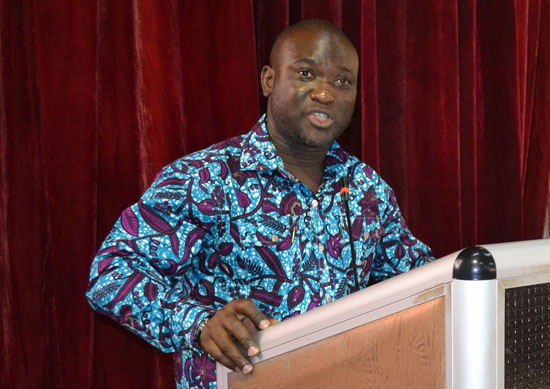
Mr Hassan Tampoli, CEO, National Petroleum Authority speaking at the opening ceremony of the course
“I wish to state that the nature of maritime threats are dynamic and will keep evolving and changing every day. Overcoming these challenges require clear strategic direction that should be articulated within
He was however hopeful that the course would engender political and institutional will needed to consider decisions affecting the effective and efficient protection of the resources in the country’s EEZ.
“Deepening sector collaboration will not go without strengthening public-private sector cooperation. This course will
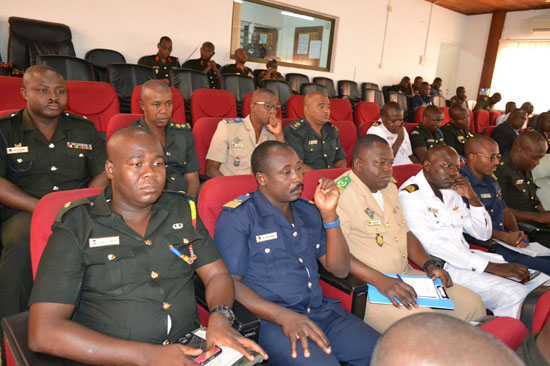
Some participants at the 14th Course
Pledge
He applauded the GAFCSC for instituting the EEZ course module as part of efforts to mitigate challenges the country faces in its maritime space.
“I wish to state that the NPA attaches great importance to this course and will continue to provide the needed support for its success,” he pledged, adding that “I wish to on behalf of the college acknowledge the support of the United Kingdom government through its Defence Section in Accra.”
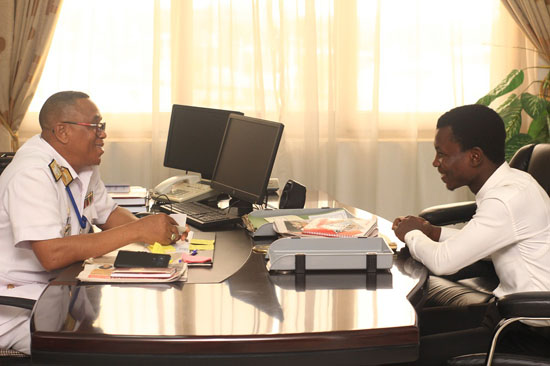
Rear Admiral Moses
Achievement
For his part, the Commandant of GAFCSC, Rear Admiral M.
He added that the course which was originally limited to the Naval faculties of the college had been expanded to include other stakeholders such as the Airforce, Army, Immigration and Customs services due to the evolving nature of the field.
“Ghana did not have oil before recently; but upon discovering oil we had to bring the Ministry of Energy and other related stakeholders on board,” he said.